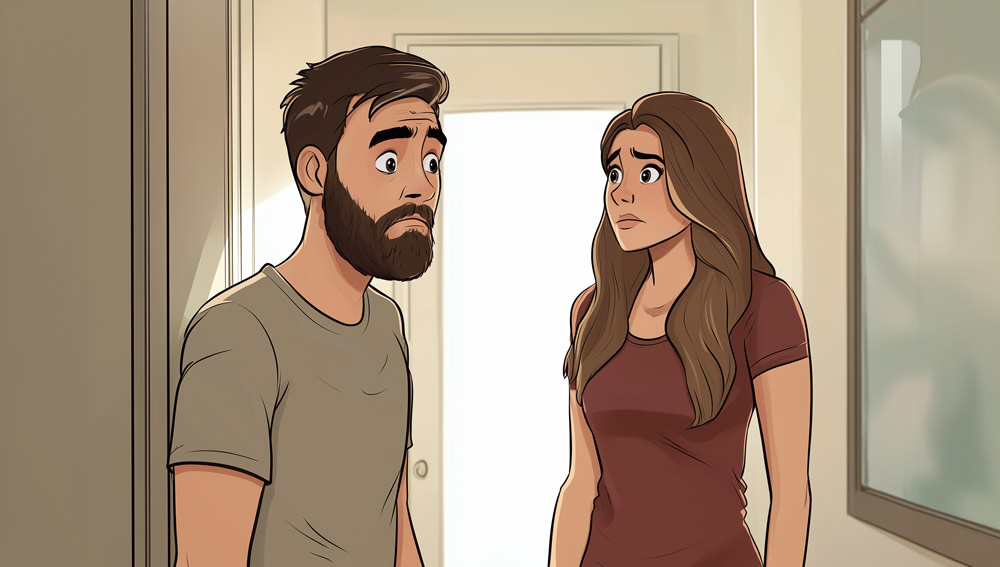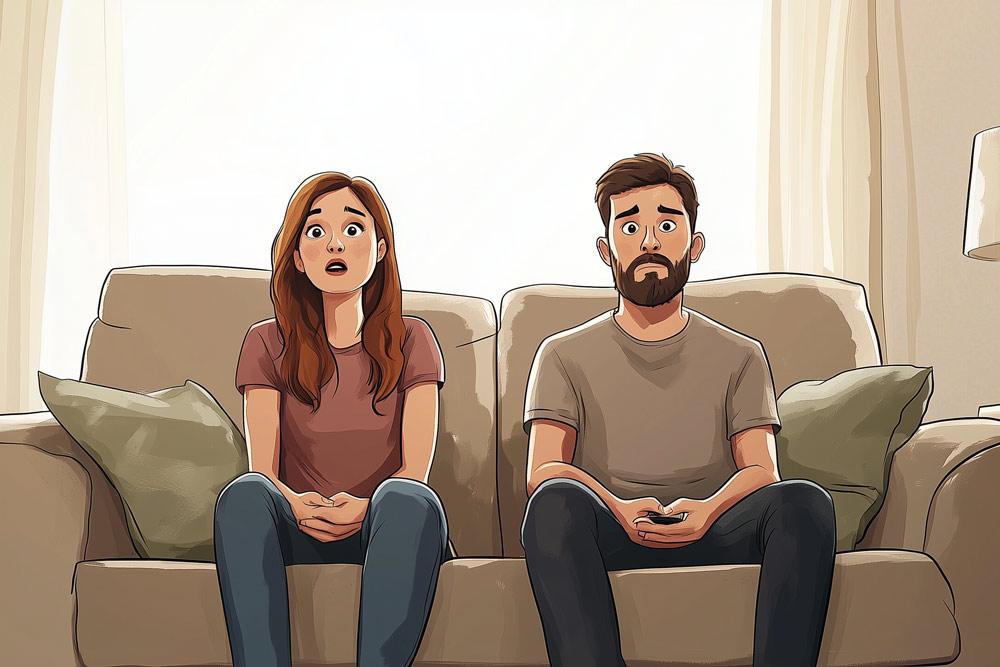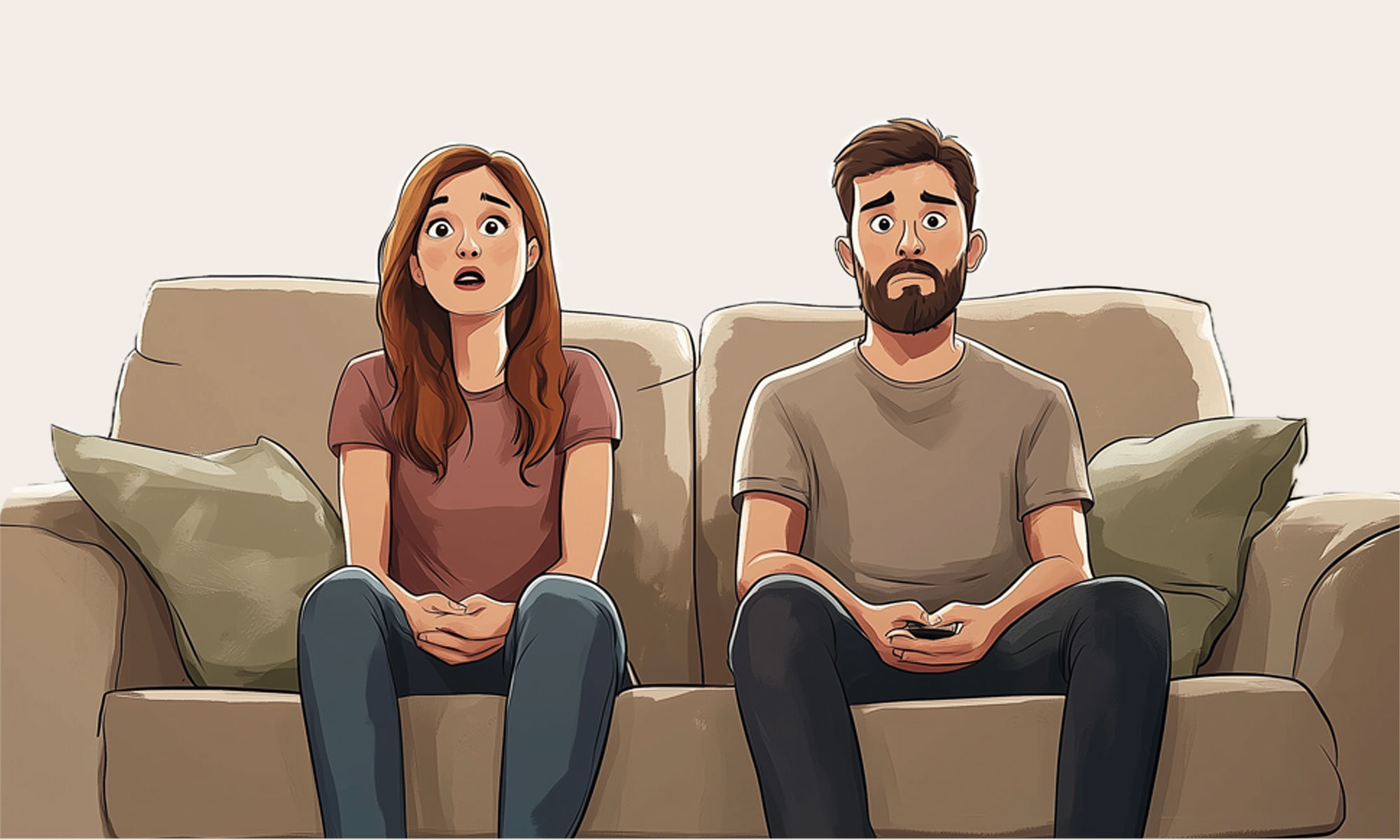As a therapist who works with Relationship OCD and retroactive jealousy, I meet couples at breaking point.
Maybe the partner struggling with RJ is really struggling right now. They can’t stop asking questions about the past or compulsively dragging it up. They see how much it hurts their partner and they feel terrible about that.
The sufferer is close to ending the relationship – even a really good relationship in all other respects – because they can’t live with these constant thoughts and feelings.

Or their partner is close to calling it. They’re trying their best to be supportive and understanding and hang in there, but they keep being made to feel ashamed or somehow responsible.
They’ve reached the point of ultimatum: you need to get help with this or we’re done.
So couples reach out to me and we recognise that this is retroactive jealousy, and it’s most often a form of OCD. And that’s positive because we can treat OCD pretty effectively. There’s hope here.
Setting expectations for therapy
I’ll explain a bit about what the therapy looks like. How we’ll aim to lower this intense sensitivity to the partner’s past, and learn how to better manage intrusive thoughts and feelings. How we can achieve this through exposure work, one step at a time.
But therapy is a process. Several weeks, a couple of months maybe, for these emotional reflexes to begin to settle. We hope to see improvement soon but we need to give it sufficient time.
So couples ask me: what do we do for now? What do we do after this conversation, tonight, tomorrow when it all flares up?
These are perfectly sensible questions to ask. We’re talking relationship damage-limitation, after all.
How do I contain my RJ thoughts?
The struggling partner knows that they have to stop doing the compulsions. The checking, questioning and constant assurance-seeking.
But they’ve tried that already, and either they can’t stop or they’re bottling it all up inside now.
What do I do when I’m having thoughts? Can I at least tell my partner what I’m thinking or am I supposed to take myself away? I’m worried I have to do something or I might freak out?
I get it. A big part of therapy is being able to roll with the thoughts. Learning how to let them pass, and staying grounded for as long as it takes for that to happen.
It’s a new attitude towards intrusive thoughts. We can’t just develop it right away. I have no magic words on that initial call to make it happen.
How do I handle RJ questions?
And the supportive partner asks me what they should be doing right now. They know that these constant questions and intrusions into their past have to stop, but when they try to shut it down, their partner’s RJ just rears up even more.
They’ve tried saying “This is your RJ or your OCD, we’re not doing this” but it hasn’t been helpful.
Partners can feel like it’s all on them too. Like they keep making mistakes or being insensitive.
Partners say to me “Have I got to be really careful from now on, do I have to tiptoe around my partner? Is that how this gets better?”
And of course not. We can be aware of the problem and supportive, but triggers and thoughts will keep happening, no matter how sensitive we try to be.
Partners keep being put in these horrible, no-win situations. And they’ve had enough. Ultimately, the onus is on the partner with RJ to get informed and step up to therapy or self-help, with their partner’s support.
How to hold it together
At this point, I usually ask the couple how long they’ve been together. How have you managed so far?
Maybe it’s a year, 5 years, 10 years plus. Often they say that the RJ comes and goes, it’s not always like this. This is hopeful too.

Can we find ways to hold it together safely for a bit longer, so we can really work on this? Some agreement. Some compassionate rules of engagement for now.
I understand you’re in crisis, but you’ve got this far together and you recognise the positives and the potential for this relationship.
This isn’t about maintaining a toxic or abusive relationship – everyone’s best out of that. But this work is about healing a loving, working partnership impacted by retroactive jealousy OCD.
What’s realistic and doable today?
Sometimes the couples I speak with are having couples therapy, or they’re on some kind of temporary break.
They’ve recognised that the RJ struggle is on one partner’s side, and someone has said ‘”Go and sort it out, work on this. You’re not in good working order for this relationship right now”.
I think this is pragmatic, but not necessarily ideal. Some time apart can be healthy for any relationship under stress, when there’s reflection and work happening on both sides.
But when we’re dealing with RJ, a temporary separation can backfire.
When partners separate, the person with RJ tends to feel significant relief. Most of the triggers go away, just like that. And RJ thinking hijacks this. There you go – you feel better already, away from your partner. It’s them and their past.
So we don’t step up to really working on this, but we feel a bit better and we come back together as a couple and it’s only a matter of time before RJ aggro starts up again.
A big part of overcoming RJ is being able to be around triggers and reminders. Not doing the avoidance or breaking away that RJ thoughts tell us to do.
So let’s look at some things couples can do together, staying close.
Understand what’s driving these questions and behaviors
I have another article with some explanation of how intrusive thoughts lead to all these questions and accusations about the past.
For partners, this kind of understanding can help make RJ feel a bit less like a personal attack.
We’re not making excuses for the questions and the harassment about the past. This is a compulsion that needs to stop. And I know that these questions always hurt. But understanding what’s underlying them can help defuse things, for now.
Make a pact for flare-ups and outbursts
More importantly, I suggest that couples agree on a realistic way to handle retroactive jealousy flare-ups, accepting that they will continue to happen.
Therapists Sally Winston and Martin Seif remind us of the Ulysses Pact.
In the ancient legend, the hero Ulysses had to sail past the sirens and their entrancing song. Calling to him, tempting him towards them. But he knew their game. It was a trap and he’d end up crashing on the rocks.
Ulysses knew he would hear the song. So he instructed his men to block their own ears with wax and tie him to the mast, to deliberately restrain him.

Then they sailed past the sirens and their song wafted across the waves, and Ulysses went temporarily insane, straining and pleading with his men to let him follow it. And they refused and sailed past and the song faded into the distance.
Partners can agree to recognise when RJ thoughts are biting, and not follow or feed them with discussion of the past, or answering questions about the past or assurances.
Even when the partner struggling says “I just need to know one more time, just this one clarification, if you really love me…”. Partners can say “I think we’re in Ulysses land here, don’t you? Remember what we agreed, this is one of those times right?”.
Reassurance tokens can help
When therapy or self-help is well underway, we can be strict about this. Both partners agree: no going there, no assurances, answers, apologising for the past. We’re learning how to sail right past without any of the old reactions.
And partners can implement such an agreement right away – just realising that they may have to be a little less strict. It may not go to plan.
Agreeing on assurance tokens can provide realistic flexibility:
OK I know you’re going to struggle with thoughts at times, and they might get the better of you. You get two tokens or passes a week, say. When you’re really struggling you can trade one in and I’ll give you some assurance or an answer. But let’s both see this for what it is. Let’s try not going there, giving you a chance to practise leaving the thoughts alone.
This can be effective and when couples find they aren’t using up tokens, we know we’re on the right track.
Timeouts help defuse situations
If you’re struggling with thoughts and feeling the urge to talk about it or question, take yourself away for a short while.
Not to go and ruminate somewhere, but to step outside or get on with something. To gently steer yourself back into the present.
And let your partner know that you’re struggling right now, and you’ll be back in 10 minutes or half an hour or whatever. They’re not to blame. You’re not going off in a weird sulk or display of ‘look what your past does to me’ – both would be compulsions.
Say you’re having a wobble or a blip and you’re going to let it pass and you’ll be back and better for it. Again, this can be agreed in advance. It’s not personal.
And little ways of distracting ourselves. Listening to some music or doing a breathing technique for relaxation. This can be helpful in these moments.
Distracting ourselves can be a compulsion, and it might be something we work to eliminate further down the line. You don’t need to reach for Spotify or do pullups every time you struggle with thoughts. But if it helps for now, it’s much better than pulling your partner in yet again.
Expect thoughts and flare-ups
Expect this to be difficult at times. Even when we do really well for days on end, RJ finds ways to bubble up to the surface.
And when it flares up again, it’s disappointing I know. But if we can view this as part of the learning curve and not a crashing failure, we can keep up the positive momentum.
OK there’s some work to do here. Maybe we’ve encountered a thought or feeling that needs a little exposure work, or a compulsion that we didn’t quite recognise before. Something else for the partner with RJ to get practising with.
You can navigate retroactive jealousy together
If you struggle with RJ or your partner does, I hope this helps with figuring out what you can do now and what you can expect moving forwards together. In a supportive and realistic way.
In these initial conversations with couples, I remind them that OCD exploits what we care about most. What’s closest to our hearts.
I’ve yet to meet anyone who obsessed over the past of a partner they didn’t really care about, or were ambivalent about. Or a partner who stuck by someone struggling with RJ, when they didn’t really care or were ambivalent about the relationship.
RJ can be cruel in this way, it’s hard on both partners. And these agreements and suggestions and therapy itself can feel like a huge leap of faith.
But in many ways, the fact that you’re here as a couple tells us it’s worth persevering and taking that leap of faith.
